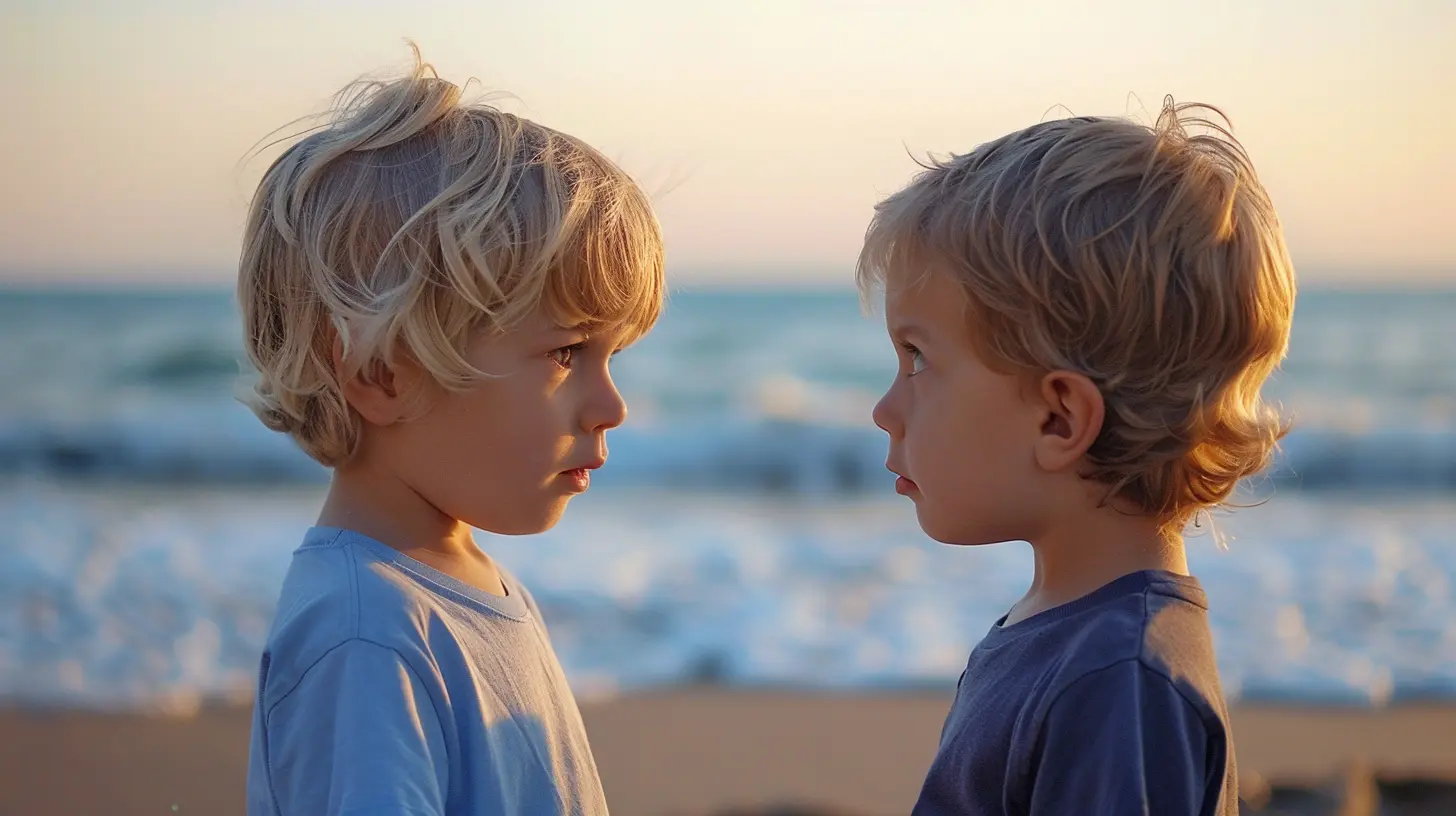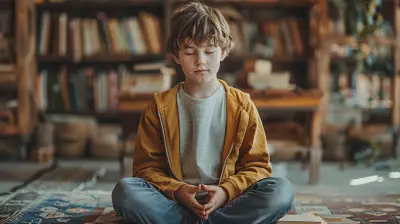Conflict Resolution Techniques Every Parent Should Know
17 October 2025
Parenting comes with its fair share of challenges, and one of the biggest is handling conflicts—whether it’s between siblings, parent and child, or even among the entire family. Disagreements are natural, but how you handle them can make all the difference in fostering a peaceful household.
If you've ever felt like a referee in your home, constantly breaking up fights or dealing with tantrums, you're not alone. But here’s the good news: conflict resolution is a skill that can be learned. In this guide, we'll walk through practical techniques every parent should have up their sleeve to create a calmer, more cooperative environment. 
Why Conflict Resolution Matters in Parenting
Disagreements are inevitable, but they don’t have to turn into shouting matches or emotional meltdowns. The way conflicts are handled teaches kids lifelong skills—how to express their emotions, listen to different perspectives, and compromise.When parents use effective conflict resolution strategies, they:
- Build stronger family connections
- Teach kids problem-solving skills
- Reduce stress and tension at home
- Encourage emotional intelligence
- Foster independence and self-regulation
Now, let's dive into some proven techniques that can help parents manage conflicts in a way that strengthens their bond with their children rather than damaging it. 
1. Stay Calm and Model the Behavior You Want to See
Kids mirror what they see, not just what they hear. If you respond to conflict with anger, frustration, or yelling, they’ll do the same. Instead, practice self-control by taking deep breaths, lowering your voice, and speaking firmly but calmly.Try this: The next time your child is upset, model emotional regulation by saying, "I can see you're frustrated. Let's take a deep breath together and talk about it." By showing them how to manage emotions in real-time, you’re giving them a blueprint for handling their own conflicts. 
2. Listen Before You Speak
Many conflicts arise because kids feel unheard. Before jumping to conclusions or issuing consequences, take a moment to truly listen. Ask open-ended questions like:- "What happened from your perspective?"
- "How are you feeling right now?"
- "What do you think we can do to fix this?"
Active listening doesn’t mean agreeing with everything your child says, but it does show that their feelings matter. When kids feel heard, they’re more likely to cooperate and come to a solution willingly. 
3. Use “I” Statements Instead of Blaming
Kids (and adults) tend to get defensive when they feel accused. Instead of saying, "You're being so rude!" try using an “I” statement:- "I feel frustrated when toys are left on the floor because it makes the house messy."
- "I get worried when you don’t tell me where you’re going."
This shifts the focus from blame to communication, making it easier for kids to understand your perspective without feeling attacked.
4. Encourage Problem-Solving Instead of Punishment
While consequences are sometimes necessary, constantly resorting to punishment doesn’t teach kids how to resolve issues. Instead, involve them in finding a solution. Ask, "What do you think would be a fair way to fix this problem?"For example, if your child refuses to share toys with a sibling, instead of taking the toy away immediately, ask them to come up with a sharing plan. This helps them develop problem-solving skills and take responsibility for their actions.
5. Teach Kids to Take a Break When Emotions Run High
When emotions start to boil over, sometimes the best thing you can do is hit the pause button. Teach your child that it's okay to take a break before discussing the issue.Try saying, "I think we're both feeling too upset to talk right now. Let's take five minutes to cool down and then try again."
This helps prevent knee-jerk reactions and gives everyone space to collect their thoughts before addressing the conflict.
6. Encourage Empathy: Seeing the Other Side
One of the most valuable conflict resolution skills is empathy—understanding and respecting someone else’s feelings. You can encourage empathy by asking your child questions like:- "How do you think your sister felt when you yelled at her?"
- "What would you want someone to do if they hurt your feelings?"
When kids learn to put themselves in others' shoes, they become more compassionate and better at resolving conflicts on their own.
7. Set Clear Family Rules About Conflict
Having a set of family guidelines can prevent many conflicts before they even start. Create simple, clear rules about how disagreements should be handled, such as:- "No yelling or name-calling."
- "Everyone gets a chance to speak."
- "We solve problems together, not with aggression."
Discuss these rules regularly and remind your kids of them when tensions rise. Consistency is key!
8. Know When to Intervene (And When to Let Kids Work It Out)
Not every conflict needs a parent to step in. Sometimes, kids can (and should) work out minor disagreements on their own. However, if things escalate to aggression or name-calling, it’s time for an adult to mediate.Your role should be to guide, not dictate. Instead of immediately issuing a solution, help them navigate the conversation by asking neutral questions and steering them toward a resolution.
9. Use Humor to Diffuse Tension
Laughter can be an excellent tool for breaking the tension. Of course, this doesn’t mean making light of serious conflicts, but sometimes a well-placed joke or funny face can snap everyone out of a heated moment and reset the conversation.For example, if your kids are bickering over something trivial, you could say, "Oh no, it's the Great Sibling Battle of 2024! Should we call the newspapers?" A little humor helps kids realize the silliness of the argument and makes it easier to move forward.
10. Be Patient—Conflict Resolution Takes Time
Learning to handle conflicts in a healthy way doesn’t happen overnight. Kids (and adults) will make mistakes, lose their tempers, and occasionally forget everything they've learned. That’s normal!The key is consistency. The more you reinforce these techniques, the more they’ll become second nature. Over time, your home will become a place where conflicts are handled with understanding, respect, and problem-solving rather than yelling and tears.
Final Thoughts
Parenting is messy, emotional, and full of unexpected challenges. Conflicts will happen—it’s unavoidable when you’re raising tiny humans with big emotions. But how you handle those conflicts can shape your child's future ability to communicate, compromise, and resolve problems.By staying calm, listening, encouraging empathy, and promoting problem-solving, you’ll not only reduce household stress but also equip your kids with the tools they need to navigate conflicts throughout their lives.
So next time a disagreement arises, take a breath, use these techniques, and turn a chaotic situation into a learning opportunity. Because in the end, parenting isn’t just about raising kids—it’s about raising kind, understanding, and emotionally intelligent humans.
all images in this post were generated using AI tools
Category:
Positive ParentingAuthor:

Zelda Gill
Discussion
rate this article
1 comments
Nyxaris Dillon
Empowering article! These conflict resolution techniques will nurture harmony and joy in family relationships. Love it!
October 24, 2025 at 3:05 AM

Zelda Gill
Thank you for your kind words! I'm glad you found the article helpful for nurturing family harmony.


